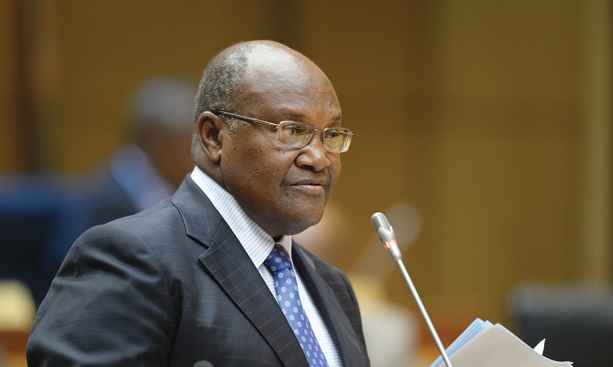The Minister of Finance and Economic Development Kenneth Matambo has told Parliament his ministry is working to comply with international standards and remove any perception that Botswana could be a tax haven.
“Government has since reviewed the Botswana International Financial Services Centre tax regime which led to the amendment of the Income Tax Act by Parliament in December last year. The amended regime has since been assessed by the Organisation for Economic Cooperation and Development (OECD) in January 2019, which declared it not to be harmful. The amendment to the Income Tax Act also introduced Transfer Pricing Rules and Thin Capitalisation provisions. Transfer Pricing Rules guard against attempts by multi-national corporations to minimise their tax liability by transferring profits to low tax jurisdictions in order to pay less tax or where costs are charged to a company in a high tax jurisdiction to reduce profits and thereby pay less tax. Thin Capitalisation is when a company is financed through a high level of debt compared to equity. The Thin Capitalisation provisions seek to restrict the amount of interest on debt, which would reduce a company’s profits and thereby reduce its tax payable,” he said in 2019/20 Budget Speech.
The ‘tax haven’ tag that has been placed on Botswana has affected its international profile among potential investors and international agencies that support clean financial operations.
The Minister further said the Transfer Duty Act is to be amended to modernise and close any gaps in the existing law. “One of the significant changes is the exemption of citizens from paying transfer duty under certain circumstances, such as where a citizen acquires residential property for the first time to be used as own home. The amendment also increases the exemption threshold from P200 000 to P500 000 for purposes of computing duty payable upon transfer of property. The latter changes should encourage home ownership, especially by the young families and people starting their lives,” he said.
Matambo will also seek to have the Capital Transfer Tax Act amended to align it with the Transfer Duty Act. “These amendments, among others, will include: removing the ceiling of P15 000, for exemption of transfer of property such as household goods and personal belongings to heirs; increasing the value of gifts that are exempted from being taxed from P5 000 to P25 000; and the transfer of immovable property which is currently exempted under the Transfer Duty Act will also be exempted under the Capital Transfer Act. The PPAD Act is also being reviewed in order to address gaps and challenges that were experienced during the implementation of the Act. The review is meant to align it with global trends within the procurement landscape and this is expected to improve efficiency and effectiveness in the management and regulation of public procurement and asset disposal processes.”
